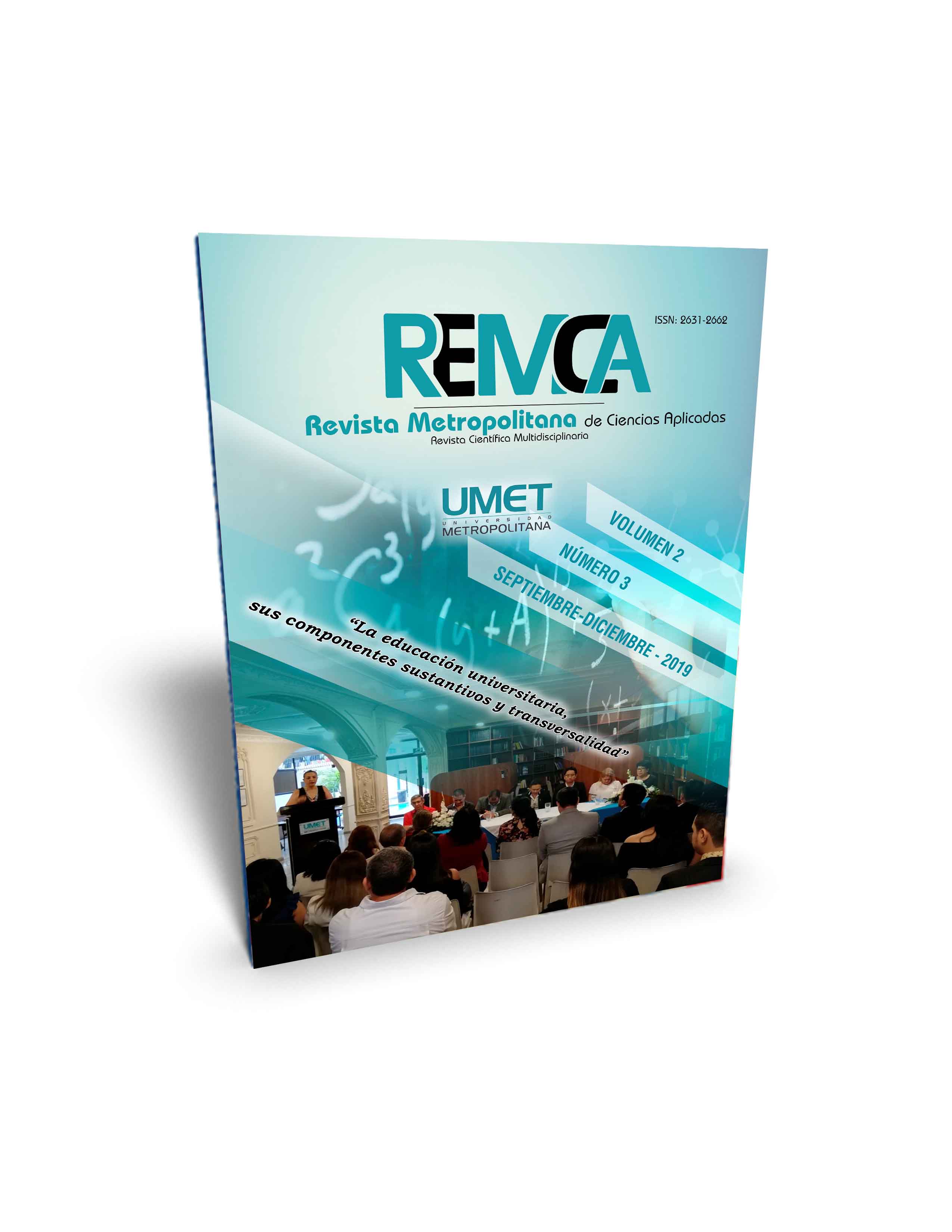Definition of strategies for environmental education at the basic level of Tumaco, Nariño, Colombia
DOI:
https://doi.org/10.62452/kst55458Keywords:
Environmental education, strategies, national development planAbstract
The work focuses on Environmental Education from three perspectives, definitions, global strategies that are developed in several countries of the Ibero-American area and the state of environmental issues in Tumaco Nariño. Empirical methods of obtaining information supported by the Likenrt scale are used; the results of interviews with teachers and students are compared with those obtained from the analysis of current strategies in Environmental Education for the Department of Tumaco, to reaffirm the need to develop strategies contextualized from the educational institution as evidenced by experiences that derive from work from the Metropolitan University of Ecuador. Therefore, the objective is to show the state of the subject and to point out where the changes in the Environmental Education strategies should be directed. As conclusions, we share the need to contextualize the strategies of Environmental Education with an integrating approach to actions prioritizing the participation of all socio-environmental actors, to achieve an environmental awareness and positive effects in the mitigation of climate change.
Downloads
References
Almoguea Fernández, M., Baute Álvarez, L., & Rodríguez Muñoz, R. (2019). La formación continua de docentes en la Educación Técnica y Profesional: algunas reflexiones. Conrado, 15(68), 275-280. Recuperado de https://conrado.ucf.edu.cu/index.php/conrado/article/view/1018/1038
Bosque-Suárez, R. (2014). El estado del arte de la educación ambiental y energética en las universidades de ciencias pedagógicas en Cuba. Varona, 58), 67-77. Recuperado de http://www.redalyc.org/articulo.oa?id=360634165008
Colombia. Congreso de la República. (1994). Ley 115 de febrero 8 de 1994. Recuperado de https://www.mineducacion.gov.co/1621/articles-85906_archivo_pdf.pdf
Colombia. Gobernación de Nariño. Plan de desarrollo Nariño Corazón del Mundo 2016-2019. Recuperado de https://xn--nario-rta.gov.co/inicio/files/PlanDesarrollo/Plan_de_Desarrollo_Narino_Corazon_del_Mundo_2016-2019.pdf.
Colombia. Ministerio del Ambiente. (2018). Información General de la Educación Ambiental. Recuperado de http://www.minambiente.gov.co/index.php/component/content/article?id=379:plantilla-ordenamiento-ambiental-territorial-y-coordinacion-del-sina-con-galeria-6
Lenis Gil, M. C., & Arboleda Albornoz, L. A. (2015). Pertinencia de los proyectos ambientales escolares PRAE en la zona urbana de la ciudad de Palmira. (Tesis). Manizales: Universidad de Manizales.
Martínez Pérez, H., & Amador Lorenzo, E. (2017). Integración de la educación ambiental para el desarrollo sostenible en la preparación del docente. Congreso Universidad, 6(5). Recuperado de http://www.congresouniversidad.cu/revista/index.php/congresouniversidad/index
Miranda López, A. (2014). Educación ambiental en el proceso de enseñanza-aprendizaje en Primaria, Secundaria y Preuniversitario. Vinculando. Recuperado de http://vinculando.org/ecologia/educacion-ambiental-en-el-proceso-de-ensenanza-aprendizaje-en-primaria-secundaria-y-preuniversitario.html
Paz, L. S., Avendaño, W. R., & Parada-Trujillo, A. E. (2014). Desarrollo conceptual de la educación ambiental en el contexto colombiano. Revista Luna Azul, 39, 250-270. Recuperado de http://www.redalyc.org/articulo.oa?id=321732142015
Pita-Morales L. (2019). Línea de tiempo: educación ambiental en Colombia. Revista Praxis, 12, 118-125. Recuperado de https://www.academia.edu/32509136/L%C3%8DNEA_DE_TIEMPO_EDUCACI%C3%93N_AMBIENTAL_EN_COLOMBIA_L%C3%8DNEA_DE_TIEMPO_EDUCACI%C3%93N_AMBIENTAL_EN_COLOMBIA_TIMELINE_ENVIRONMENTAL_EDUCATION_IN_COLOMBIA
Torres Carrasco, M. (2014). La educación ambiental en Colombia: un contexto de transformación social y un proceso de participación en construcción, a la luz del fortalecimiento de la reflexión-acción. Recuperado de http://aplicaciones2.colombiaaprende.edu.co/red_privada/sites/default/files/LA_EDUCACION_AMBIENTAL_EN_COLOMBIA.pdf
Downloads
Published
Issue
Section
License
Copyright (c) 2019 Raúl Rodríguez Muñoz, Aleyda Emilce Guerrero Caicedo (Autor/a)

This work is licensed under a Creative Commons Attribution-NonCommercial-ShareAlike 4.0 International License.
Authors who publish in Revista Metropolitana de Ciencias Aplicadas (REMCA), agree to the following terms:
1. Copyright
Authors retain unrestricted copyright to their work. Authors grant the journal the right of first publication. To this end, they assign the journal non-exclusive exploitation rights (reproduction, distribution, public communication, and transformation). Authors may enter into additional agreements for the non-exclusive distribution of the version of the work published in the journal, provided that acknowledgment of its initial publication in this journal is given.
© The authors.
2. License
The articles are published in the journal under the Creative Commons Attribution-NonCommercial-ShareAlike 4.0 International License (CC BY-NC-SA 4.0). The terms can be found at: https://creativecommons.org/licenses/by-nc-sa/4.0/deed.en
This license allows:
- Sharing: Copying and redistributing the material in any medium or format.
- Adapting: Remixing, transforming, and building upon the material.
Under the following terms:
- Attribution: You must give appropriate credit, provide a link to the license, and indicate if any changes were made. You may do this in any reasonable manner, but not in any way that suggests the licensor endorses or sponsors your use.
- NonCommercial: You may not use the material for commercial purposes.
- ShareAlike: If you remix, transform, or build upon the material, you must distribute your creation under the same license as the original work.
There are no additional restrictions. You may not apply legal terms or technological measures that legally restrict others from doing anything the license permits.




